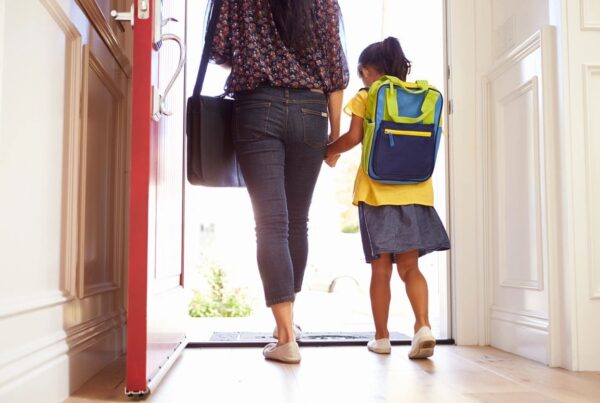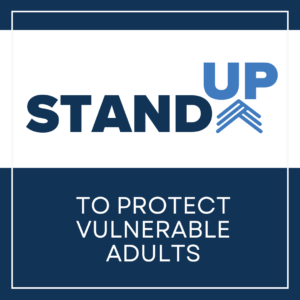What does it say about our society when our sanctuaries are no longer sanctuaries?
#MeToo started a conversation centered around harassment and assault. Yet those of us in communities of faith are now contending with #ChurchToo, raising the specter of sexual abuse—in many cases, against children—specifically within the context of the faith environment.
Child sexual abuse is a silent epidemic in every facet of American life. Today, it’s estimated that 1 in 4 girls and 1 in 6 boys have been sexually abused before the age of 18.[1] It cuts across all demographics, backgrounds, and geographic areas.
If the prevalence of abuse isn’t heartbreaking enough, just look at the rates of disclosure. It’s estimated that 60-80% of victims of childhood sexual assault delay reporting until adulthood.[2] A contributing factor to delayed reporting is the assumption that survivors will not be believed. But studies have shown that negative reactions to a survivor’s disclosure of sexual assault is the strongest predictor of poor mental health outcomes after an assault.[3]
We all have a serious role to play in a community where children don’t feel safe to tell us when something terrible has happened.
As a survivor who grew up in the evangelical church and attended a private Christian school, I can confidently say that neither my church nor my school was prepared for a disclosure of abuse of any kind. Even today, it seems many faith-based organizations are not prepared. So, we must ask ourselves a simple question: Why? Why don’t we have prevention policies in place? Why don’t we provide prevention education for all staff and school-aged children? Why don’t we have standards and response plans in place?
I’ve spent the last 17 years sharing my testimony and advocating as the namesake of Jenna’s Law legislation[4], which implements training on the state and federal level on this very topic: child sexual abuse prevention.
With the 500+ keynote speeches I have given, I always have survivors open up to me to disclose abuse–sometimes for the very first time. And I’ve seen a pattern: In silence, shame is allowed to grow. Since body safety was never mentioned in any of my safe places- home, school, or church, I concluded that, “this must be something that is better left unspoken.” This is the message that is echoed in the heart of every survivor. This is the message we send out in our communities when we, as safe people, don’t address body safety in a preventative manner. Unfortunately, my generation has been forced to face what previous generation have failed to do.
We must break the silence.
As a community of faith, silence in the face of sin is something we should not stand for. Ever. Please tell me where in the Scriptures it tells us to avoid addressing a topic because it’s uncomfortable? We can’t address what we don’t acknowledge.
In the same way there is a mental, psychological, and physical impact of abuse, there is also a spiritual impact of abuse. In a study of 527 survivors of abuse[5], researchers found these children had a significant “spiritual injury” such as feelings of guilt, anger, grief, despair, doubt, fear of death, and belief that God is unfair. And when the abuse happens within the faith environment the impact of the survivor’s spiritual damage is often heightened. Perhaps this is why Jesus spoke his harshest words to those who harm children (Matthew 18:6).
In more than 90% of cases, a child is sexually abused by someone they know and trust.[6] Perpetrators often cynically choose to take on trusted roles in society—coach, educator, clergy—to gain access to children. Many are married with families, educated, they claim to be religious, and are socially skilled. Background checks fail to spot them, as less than 10% of child sex offenders are ever criminally prosecuted.[7] We can’t somehow believe our churches are immune—no religion or denomination is.
The Evangelical Council for Abuse Prevention recently hosted a one-day event called Prevention and Redemption, to address prevention, intervention, and response to child sexual abuse in the faith environment. This summit was an encouraging example, as Christian leaders took a critical step towards acknowledging abuse and its devastating effects.
To prevent abuse and its devastating effects, here are the five areas where ECAP has developed Standards that faith-based organizations must adopt:
- Governance
- Child Safety Operations
- Screening
- Training
- Response
An additional program that is empowering pre-K-12th grade in body safety is the Childhelp Speak Up Be Safe program, which helps children and teens learn the skills to prevent or interrupt cycles of neglect, bullying, and child abuse.
What’s at stake if we fail? Quite simply, the faith of our children and how they will interpret what happened to them. Hiding the past involves denial. Denial of the past prohibits God’s redemptive work of sanctification in us. As a body of believers, we should adhere to Ephesians 5:11 and expose the works of darkness. For the sake of our churches, our communities, and our children, we must act now—every child and every soul matters.
[1] https://www.cdc.gov/violenceprevention/childsexualabuse/fastfact.html
[3] https://pubmed.ncbi.nlm.nih.gov/27936851/
[4] https://jennaquinn.net/the-jenna-quinn-law
[5] Drebing et al., “Long Term Impact of Child Abuse,” 369
[6] https://www.rainn.org/statistics/children-and-teens
[7] https://buildinghopetoday.org/





